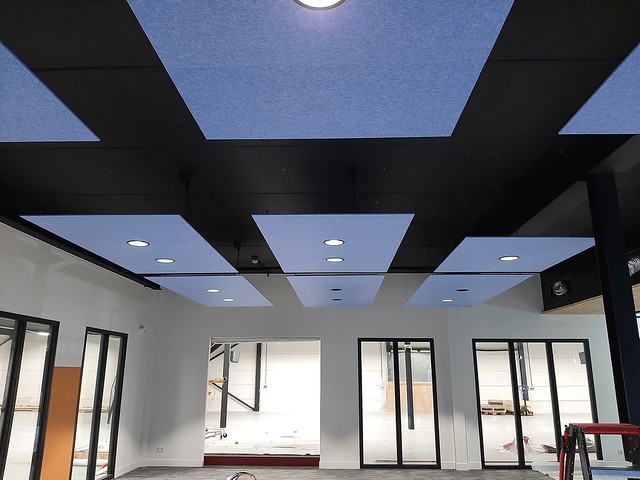The Benefits of a Dehumidifier
Many things are affected by moisture – metals can rust, wood can warp and even some foods spoil. Dehumidifiers reduce the amount of moisture in the air to prevent such problems and help keep possessions in good condition.
Mold, mildew and many allergens grow more easily in humid environments. A dehumidifier can decrease allergens, improving the quality of your life and reducing health risks.
Improved Air Quality
The heaviness of high humidity air can cause phlegm to build up in your sinuses, and this makes breathing difficult for those with chronic respiratory conditions like asthma, COPD or chronic bronchitis. Dehumidifiers help to relieve this heaviness by lowering the number of mold spores and dust mites in the air.
In addition, a dehumidifier helps to lower musty odors caused by mold and mildew. Using a dehumidifier in areas of your home where moisture is a problem, such as the basement or crawl space, can significantly improve these musty odors.
Having a dehumidifier in your home also helps to protect your belongings from damage. Humid environments can cause wood to warp, paint to peel and create the perfect breeding ground for pests. Keeping the moisture level below 50% will prevent this damage and keep your house, furniture and collectibles safe.
A dehumidifier works by sucking air over cold coils that cause the moisture to condense and then either draining into a receptacle or being directed outside through a hose. It is important to check your dehumidifier regularly for water accumulation, as it will need to be emptied and rinsed out on a regular basis to stay in good working order.
Signs of excess moisture include mold or mildew odors, water stains on walls, ceilings dehumidifier or floors and condensation on windows. A dehumidifier is a wise investment for any part of the home prone to these problems.
Decreased Allergens
A dehumidifier can help alleviate allergies because it creates an inhospitable environment for mold, mildew, and dust mites to grow. Allergens like these thrive in humid environments, making them a trigger for asthma and other respiratory conditions. Dehumidifiers help reduce these allergens by regulating moisture levels and eliminating damp odors.
Humid climates also make it easy for dust mites to reproduce, which can lead to a variety of ailments including itchy eyes, skin rashes, and difficulty breathing. Using a dehumidifier can reduce the population of these pesky creatures by keeping humidity below 50 percent, the “goldilocks” level for allergy sufferers.
Mold and mildew also thrive in high humidity levels, which can cause eye irritation, nose itchiness, and sinus headaches. Similarly, a humid environment can cause a slew of symptoms related to seasonal allergies like sneezing, runny nose, and congestion. A dehumidifier can reduce these allergens by preventing their growth and removing existing mold and mildew spores from the air.
In addition, a dehumidifier can prevent condensation from forming on windows and other surfaces, which can lead to mold and bacteria. It can also prevent stains, making your home safer and more comfortable. As an added bonus, a dehumidifier can help you get better sleep by reducing the amount of moisture in the air. This can help you breathe more easily and reduce the frequency of coughing and sneezing episodes during the night.
Decreased Risk of Mold and Mildew
Mold and mildew are one of the most visible signs of a humidity problem. dehumidifier wholesale They can create unsightly spots on walls, ceilings, behind furniture, and in kitchens or bathrooms. They also release a musty, offensive odor that can trigger allergy flare-ups in sensitive people.
Mold spores are always present in the air, but they only grow when they find the right conditions. That includes high levels of moisture, which is why basements and bathrooms are common places for them to thrive. Dehumidifiers reduce the chances of mold growth by removing excess moisture from the air.
If mold already exists, however, a dehumidifier can’t do much to help. It can stop it from spreading by reducing humidity, but it will still need to be killed and removed by a professional.
A dehumidifier can also prevent condensation from forming on windows and other surfaces, which is another sign of a high humidity level. This is especially important during certain seasons when the air tends to hold more moisture.
Reduced Energy Consumption
Depending on the size of the unit and the number of hours it is used per day, dehumidifiers use a small amount of electricity to remove moisture from the air. This energy usage is comparable to that of an air conditioner, though it is significantly less than that of a dryer.
Humid environments make it difficult for people with allergies or respiratory illnesses such as asthma to breathe. They also provide a breeding ground for common allergens such as dust mites and mold spores, which can cause irritation and other unpleasant symptoms.
Dehumidifiers help reduce humidity levels, making it easier to clean and maintain a home or office. They can also prevent items such as books and clothing from warping, metals from rusting and wooden materials from rotting. They can also keep pests such as spiders, roaches and silverfish away from properties and buildings.
Investing in a dehumidifier may save you money in the long run by preventing costly repairs or replacements. For example, excessive moisture in a garage can cause wooden doors to warp and metal fixtures to rust. It can also lead to the growth of mold in and around cars, boats and other valuables stored inside a building. A dehumidifier placed in a garage can help reduce this moisture and create an environment that is more pleasant for people who are using tools or storing belongings.



